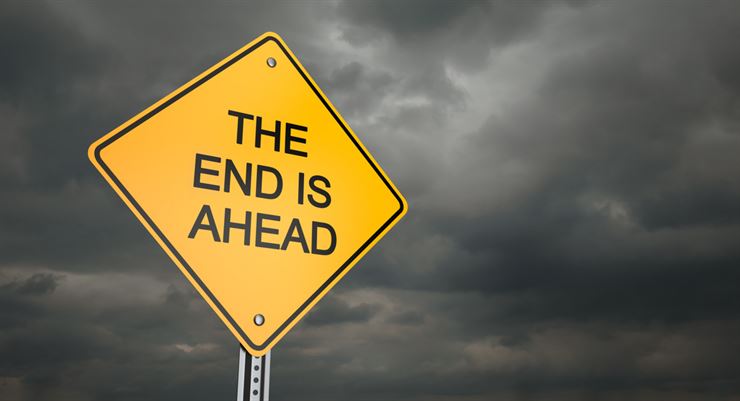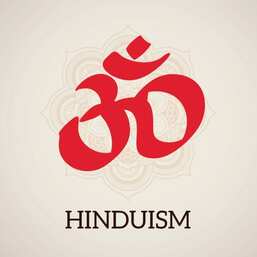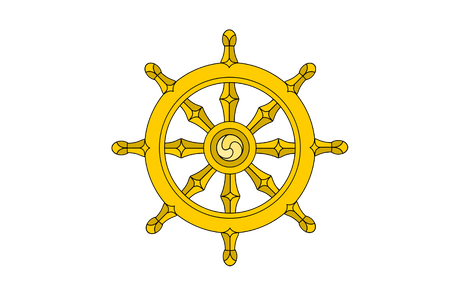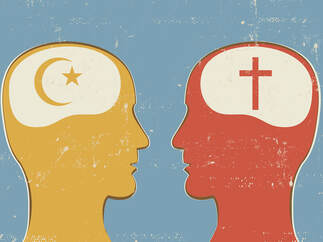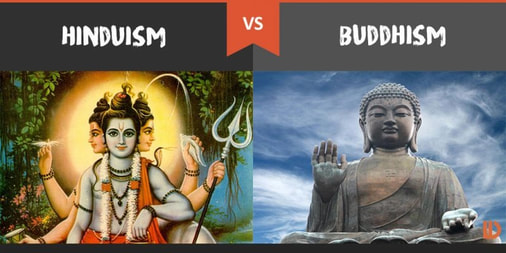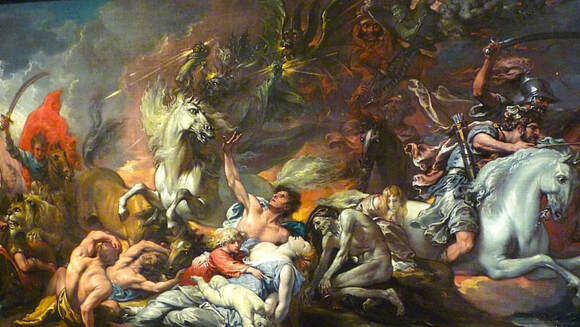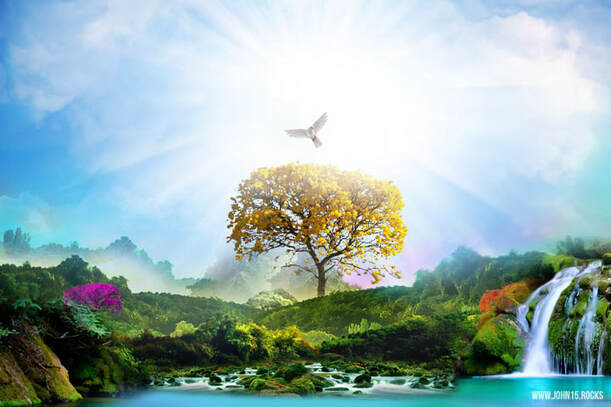Religious Views On the End of the World
Overview
There are many religions in our world and many of have different beliefs as to how the world will end one day. A common theme among each religion is an apocalyptic type ending to the world. There are five major religions that I will discuss and these include Christianity, Islam, Hinduism, Buddhism, and Native American beliefs. Throughout the course, Surviving Apocalypse, there have been many themes introduced that can be found in apocalyptic literature. Of these themes, there are two that are apparent in these religions’ beliefs of how the world will end. These themes include the theme of death and the theme of a potential new life or world after the apocalyptic event. Scientists have formed opinions on why people of faith believe in potential different scenarios of how the world will end that is taught by their religion. There are various possibilities presented by different world religions of how the world ends and what apocalyptic event may occur.
Christianity
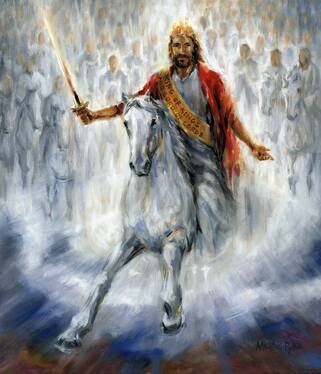
The first religion is Christianity, and found in the New Testament of the Bible is the book of Revelation. This is one of the most well known apocalyptic books and includes “a literal description of a final battle on Earth between God and the forces of Satan” (Kiger, “How the World’s Religions”). It is the only apocalyptic literature found in the Bible and it was written by the apostle John. The book is actually split up into two parts and in a way deals with the present-day crisis of faith. “The book comprises two main parts, the first of which contains moral admonitions in individual letters addressed to the seven Christian churches of Asia Minor. In the second part, visions, allegories, and symbols so pervade the text that scholars necessarily differ in their interpretations” (“Revelation to John”). The book of Revelation depicts that at the end of our world, a battle between God and the various forces of Satan will occur in our world. This is known as the rapture by many Christians, and there are terrible events that occur leading up to this such as earthquakes, worldwide famine, disease, wars, and other signs from Heaven. Following this, the book states that there will be a false prophet and a beast, known as the antichrist, who is recognized by and has the number 666, and will establish control over the Earth (Tabor, “Apocalypticism Explained”). The beast will give its followers the mark of the beast on their hand and forehead, and unless you have the mark, you cannot buy or sell anything in the world. This will cause the followers of Christ that will not get the mark to suffer because they will not be able sell anything to make money or buy any necessities to live. The beast will be defeated when Jesus Christ returns. It says in the book of Revelation that when Jesus returns, he will return from the heavens and descend on horseback with an army of horseman. The horseman will be in white linen and they will confront and defeat the beast, otherwise known as Satan. Additionally, Satan will be thrown into a bottomless pit and will be imprisoned in chains (Kiger, “How the World’s Religions”). Finally, it is believed among Christians that when Christ returns, the true believers in Christ will be lifted up into the air and their lives will be spared from the terrible events that will occur during the rapture. After the final battle between Christ and Satan, there will be a judgement day where the people who have rejected God and his Word will be cast into the lake if fire, known as Hell, and the followers of Christ will get to live in a new Heaven and Earth where they will always be in the presence of God.
Islam

Islam is a religion is based on a holy book named the Qur’an. In the Qur’an, there are many climatic events that show that the end of the world is coming and near. There will be an increase in the amount of natural disasters occurring and our society will begin to decline morally which leads to an increase in the amount of violence, sexual immorality, and anarchy (Kiger, “How the World’s Religions”). Also, in the Qur’an there are verses that describe in the final days “the sun folding up, the stars falling and losing their luster, graves being turned upside down, and men will be like moths scattered about and mountains like carded wool” (Larson, “Islamic Apocalypse”). Muhammad is the last prophet and founder of Islam, and it is known that he had revelations from Allah that were written down and became what is known today as the Qur’an. Muhammad states that a false prophet, also known as the beast, will appear and his name will be Dajjal. This false prophet will trick people into believing and worshiping him instead of Allah. During this time at the end of the world Jesus, a prophet in the Muslim faith, will return to Earth to kill Dajjal and save people from his evilness. Jesus is a significant part of this apocalyptic literature found in the Qur’an because he is going to be the one that defeats the false prophet Dajjal and will be able to restore peace and righteousness on Earth. The end times will be scary and terrifying according to the Qur’an, especially on the day of reckoning. This is because “people will be sweating very profusely and everyone, including the dead that will be reunited with their bodies, will be handed a book of deeds they have done on Earth. These deeds will be weighed upon a scale and the saved will enter the gates of paradise, or Heaven, while the ones that are sinful and evil will be sent to Hell” (Larson, “Islamic Apocalypse”). The Qur’an suggests that anyone sent to Hell will never escape and even the least punished individual that is sent to Hell will encounter great suffering. On the other hand, those who have been living a good life, can show good deeds and actions, and have been asking Allah for forgiveness will get to go to Heaven which has been described as a beautiful garden where the people will be greeted by angels and there will be no sin.
Hinduism
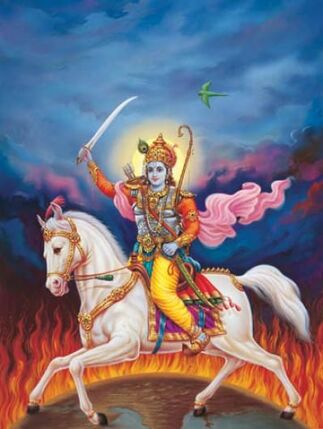
Hinduism is different from most religions when it comes to their beliefs regarding the end of the world. Individuals that belong to the religion of Hinduism actually believe “the universe goes through endless cycles of creation and destruction” (Kiger, “How the World’s Religions”). Their version of time is cyclical and the cycles are called kalpas. “Each kalpa has four stages and these stages include, in order, the Satya Yuga, Treta Yuga, Dvapara Yuga, and then the Kali Yuga. We currently reside in the Kali Yuga” (Das, “What Hinduism Teaches about Time”). There are three gods that play a role in the kalpa. These gods are named Brahma, Vishnu, and Shiva. “Bahama is the creator of the universe, Vishnu preserves the universe during its existence, and Shiva destroys the universe so it can be recreated” (Kiger, “How the World’s Religions”). During the end times of the Kali Yuga, there will be a decay of our society and violence will ensue the world. The likely result of the decay in our society will result in humans becoming more materialistic and evil. As humans begin to become more evil and corrupt, they will be met the final incarnation of Vishnu. “Vishnu, known as Kalki, will appear on a white horse and amass an army of those few pious souls left, and as a unit with all the incarnations of the Godhead, they will go and destroy all of the demons and sins in the world” (Chandwani, “How Will the World End”). Kalki ends all evil on horseback and punishes evil individuals with his sword. After Kalki has destroyed all evil left in the world, there will be the completion of Kali Yuga and another epoch will begin. The pious souls that are a part of Kalki’s army will be “transformed by virtue and will be the new seeds for a higher form of humanity and humanity will begin again” (Chandwani, “How Will the World End”). This cycle will continue to repeat until Brahma returns to the singularity and a new universe is created. The individuals that are a part of the religion of Hinduism strive to be devoutly religious and good individuals so they can be a part of Kalki’s army and be spared the punishment he will bring to the people that are evil in this world. As a reward. they will also get to be new seed for a higher form of humanity and, unlike Christianity or Islam, there is no new paradise or Heaven, but they will get to help humanity begin once again.
Buddhism
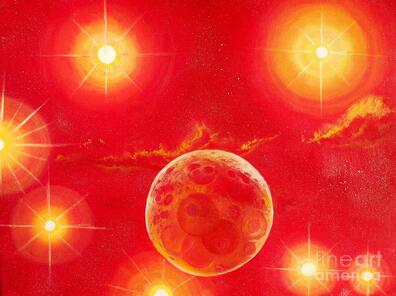
Buddhism has some similar aspects to Hinduism as to how the religion believes the world will end. “Buddhists believe that the universe is endlessly recreated at the end of cycles called kalpas, which last from 10 to 15 billion years” (Kiger, “How the World’s Religions”). As we saw with Hinduism, Buddhists also believe that each kalpa begins with a time where humans are spiritually enlightened, but in Buddhism there is a time considered the golden age where a teacher named Buddha is living. Buddhists are taught and believe that nothing can last forever and everything will cease to exist one day. “According to Buddha, the world will end because of seven suns that will surround the Earth and burn it to a crisp. Life will die off long before the Earth itself is destroyed by the trees and plant life burning up, covering the Earth in ashes while oceans dry up as well” (Palmisano, “The End of the World, According to Buddha”). The end result will be the Earth being totally enveloped by flames that leaves behind nothing. Like Hinduism, Buddhists believe, through the teachings of Buddha, that a new world will form after the end of the world occurs. Buddha has been on record stating that the world will last about six billion years and there will be around five buddhas during that time. Since the fourth buddha died around two thousand five hundred years ago, it means that we have anywhere between one to two billion years left until the end of the world occurs. Buddha says that when the world ends, there will be “no physical place left to live, and all life will then exist in Phromalok. A new world will then form and life will return and, the cycle of creation restarts all over again” (Palmisano, “The End of the World, According to Buddha”). The individuals that will exist in Phromalok are different from what happens if you were to die right now. Buddhists believe that “when we die now, our mind, with its tendencies, preferences, and characteristics that has been developed in this life, will re-establish itself in a new being. Where we are reborn is influenced by many factors, but the most important one is the Karma we have during this life. Karma determines what you are based on how we think and act in this life” (“What Happens When We Die?”). Buddhists believe the world ends with seven suns burning the Earth out of existence, but they also believe that life will exist in Phromalok until the cycle of creation and a new world begins.
Native Americans
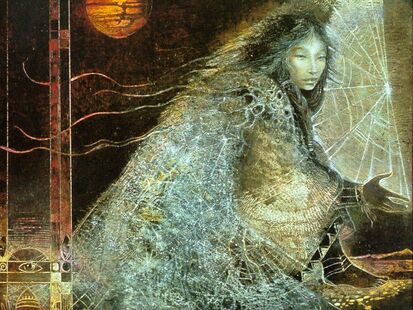
The Native American culture has varying views of how the world ends. The views differ depending on the group of Native Americans and their beliefs. There are two groups of Native Americans that will be addressed and those groups include the Hopi and the Seneca. “The Hopi people believe there will be a spirit called the Spider Woman. She will appear and weave her web across the world and you will be able to see her web everywhere” (Kiger, “How the World’s Religions”). Other Hopi teachings include prophecies of nine signs that indicate the end of the world is upon us. These signs include, “a white skinned man would come, the Native American lands will see the coming of spinning wheels filled with voices, and then a beast life buffalo will overrun the lands. Next, the land will be crossed by snakes of iron, then land will be crisscrossed by a giant spider’s web, next the land will be crisscrossed with rivers of stones that make pictures in the sun. The final three steps then include the sea turning black, then young people will come join the tribal nations, and finally a dwelling place in the heavens will appear as a blue star and the people of Hopi will cease” (ICT Staff, “Apocalypse Prophecies”). The people of Seneca believe the world will end somewhat differently. In 1913, a book was published that included predictions that were made by a nineteenth century Seneca prophet named Handsome Lake. Handsome Lake said that “we think that end of the world will include the Earth being destroyed by fire and no one will be able to escape it. All of those who do not believe in Gai’wiio’ will be enveloped in flames” (ICT Staff, “Apocalypse Prophecies”). This terrifying event will occur after there has already been mass hunger, war, and a terrible amount of environmental destruction occurring on Earth. Both the Hopi and the Seneca believe that if you are invested and believe in their teachings there is a way for you to escape the terrible events that will happen at the end of the world. These two groups of Native Americans seem to believe that the way that humans are behaving now and treating the world and their land will lead to the demise of our world. There does seem to be a place that we can escape or leave to go to that would help avoid the end of the world. The Hopi believe that their people will dwell in the Heavens and the Seneca trust that if you believe in Gai’wiio’ you will be spared of the world being enveloped in flames.
How these Religions Compare
All five of these belief systems believe in some type of apocalyptic event that will be the end of the world. Christianity and Islam seem to be similar to each other, while another pair of religions that seem to be similar are Hinduism and Buddhism. The Native American Beliefs seem to be different from the other four. Christianity and Islam both believe in a beast coming into power on Earth one day. In Christianity, it will be the antichrist while in Islam it will be Dajjal, the false prophet. In Christianity, the religion is centered around the followers’ Lord named Jesus Christ that is going to return one day with an army on horseback in white linen to defeat the antichrist. For Islam, Jesus is another prophet but will be the prophet that returns to kill Dajjal and save humanity from him. Following these events in Christianity and Islam, there will be a day of judgement or reckoning. In Christianity, all believers in Christ will be spared from the horrific events of the rapture and will get to spend eternity in Heaven while people of the Islamic faith believe they will be judged based on their good or bad deeds in life. The people that are saved when judged on their deeds will be admitted into Heaven while the others will be sent to Hell. The difference between Islam and Christianity is that in Islam you must have lived a good life and been a person who committed good deeds to make it to Heaven while in Christianity you need to be a believer in Christ. Both religions believe that the end of the world will be preceded by terrible events and an antichrist, or false prophet, that will be eventually killed by Jesus the savior for Christianity or known as the prophet for Islam. These two religions also believe in an afterlife, post the apocalyptic events that will occur, of Heaven and Hell where people will spend eternity.
Hinduism and Buddhism are similar in their belief as to how the end of the world will happen. Instead of a man named Jesus returning to Earth to defeat an evil false prophet or antichrist, these two religions believe the universe goes through kalpas, or endless cycles of creation and destruction. The difference between the two are the three gods and their roles in the cycle for Hinduism and for Buddhists, they believe in the teachings of Buddha. Hinduism believes in three Gods named Brahma, who created the universe, Vishnu, who preserves the universe, and Shiva, who destroys the universe. Buddhists believe that each cycle of the universe begins with a type of golden age where humans are spiritually enlightened until they decline, and one day the world will be destroyed in fire at the end of the kalpa. Hindus are taught and believe that once humanity declines and becomes evil, Kalki, a manifestation of Vishnu, will arrive and punish all evildoers before the world ends shortly thereafter. Both of these religions believe that humanity declines over the kalpa and will become evil. The difference is that Hindus believe Kalki will destroy all evil humans while Buddhists believe the Earth will burn up from seven suns appearing and leaving behind no ashes. The good news for both religions is that Hindus believe that people of their faith that are good will get to be a part of Kalki’s army and be a part of a new and better humanity when the next kalpa starts. While Buddhists believe that people will remain in the Phromalok until the next cycle begins. Both religions believe in apocalyptic events that will end the world, but they believe that if you are a good individual and believer you can be a part of the next life cycle when it starts again.
There are similarities and differences between the two Native American groups, Hopi and Seneca, on how they believe the world will end compared to the other four religions that have been discussed. The Hopi believe that there will be a Spiderwoman that will weave her web across the landscape of the Earth, and this web will signify that the end is near. There are also nine signs that the end is near according to the Hopi. When the end of the world comes, a blue star will appear and all people of the Hopi will cease to be and will dwell in Heaven. This is different than the other religions discussed because even though there are negative environmental changes that are a part of the nine signs that the end of the world is upon us, no other religion describes the end of the world with a figure such as a Spiderwoman and a sign, such as the blue star, that means the people that hold those beliefs will cease to exist and will dwell in Heaven in the afterlife. The similarity here is that there is a Heaven and an afterlife that some humans will dwell in that we also see in Christianity and Islam. The Seneca believe that the Earth will be destroyed by a fire in seventy nine years, which would be the year 2100. The only people that will survive the Earth being enveloped by flames will be individuals that believe in Gai’wiio’. This is similar to Buddhism because they also believe the Earth will be consumed by flames. This is also similar to Hinduism because if you are dedicated to the religion, they believe you will be spared from this terrible event. We also see mentioned by the Hopi that there will be an afterlife and a place after the apocalyptic events occur. This seems to be the theme among almost all of the religions that have been discussed.
The Theme of Death
We can see the theme of death within the descriptions of how these religions believe the world will come to an end one day. In all of the religions covered, a lot of humans encounter death during and after the apocalyptic events have occurred. In Christianity and Islam, humans will die from the moral decline in other humans or from natural disasters. Humans are also depicted as dying during the time of the antichrist or false prophet if they will not follow and believe in them. People’s life on Earth will also end, if it has not already, on the day of judgement or reckoning. In Hinduism and Buddhism, evil people will either die to Kalki and their army or by being enveloped in one giant flame when seven suns appear around the Earth. Also, the Hopi believe people that are not a part of their belief system will be left here for the end of the world while they will dwell in Heaven. The Seneca believe that people that do not believe in Gai’wiio’ will also be enveloped in fire on Earth. All of these religions explain that many people will die during the end times here on Earth. Throughout this course, we have read apocalyptic literature, and all of the novels we read had the theme of death as a part of them. Just like in apocalyptic literature, when humans believe in the different possibilities of how the world will end, they know death will be a major part of it. One common theme that can be identified in the majority of the religions discussed in this paper is that the believers of a religion can escape death and the misery that will occur during the end times if they believe what the religion teaches and practice those beliefs throughout their lives. There is also a common theme among these religions that evil individuals and people that oppose the teachings of the religions will not survive the end of the world, and when an individual is judged after they have died, they will not be a apart of Heaven, paradise, or the next cycle of the universe.
The Theme of a New World
While examining these religions, we also see the theme that religious individuals believe that there will be a new world or society after the apocalyptic events are over. In Christianity and Islam, they believe that after the day of judgement or reckoning, people will either spend eternity in Heaven or Hell. We also see in Hinduism and Buddhism that they believe some humans will survive and be a part of the new and more spiritually enlightened humans that will help start humanity and the new universe once again. The Native American groups, such as the Hopi, also believe in the afterlife where the followers of their religion will get to live after the end of the world. We have seen this theme in the apocalyptic literature we have read throughout the semester. In the literature we have read, we see how humans are always looking forward to what life will look like after the apocalyptic events occur. In Station Eleven, we see the characters create a new home, or even a new society in the airport, and a new found hope they have when they see a faraway city with electricity again in Zone One. Also, we see how Mark Spitz continues to look forward to and thinks about New York City and what life will be like after it is inhabitable again. In apocalyptic literature, it is a common theme to see the characters imagine and crave life post-apocalypse, and we see that in these religions. The members of the religions that have been discussed in this paper all believe in various scenarios of how the world ends, but they also believe what they have been taught will happen to them after the end occurs. The members of these religions, just like characters in the novels we have read this semester, often look forward to the afterlife in Heaven or helping restart humanity in the next cycle. As humans, we seem to like knowing there is something we can look forward to and know that there will be something better in the future like Heaven or a new and more spiritually enlightened world, even if there will be horrific events that occur at the end of the world.
Conclusion
An apocalyptic ending to the world is a common event and idea that is shared amongst major religions across the world. The religions that were discussed include the beliefs of Christianity, Islam, Hinduism, Buddhism, and Native Americans. Scientists have studied why humans want to believe in the teachings of a religion, and the way the religion teaches the world will end one day. They seem to believe that human minds desire to know their future and to be certain of how life will play out. This can be attributed to the natural tendency for people to worry about various things in their life. Even though many of the teachings from these religions teach that the world will end due to terrible events, the ability for a human to believe they know what will happen when the end of the world occurs can surprisingly bring them the reassurance they may need.
The video below provides an example of when people believed the world was going to end. Dr. Anthony Aveni goes on to explain why people predict and believe different scenarios of how the world is going to end.
Works Cited
Chandwani, Nikhil. “How Will the World End According to Hinduism?” NYK Daily, Nykdaily, 29 Nov. 2019, nykdaily.com/2019/11/how-will-the-world-end-according-to-hinduism/.
Das, Subhamoy. “What Hinduism Teaches about Time.” Learn Religions, Dotdash, 20 Aug. 2018, www.learnreligions.com/the-concept-of-time-1770059.
ICT Staff. “Apocalypse Prophecies: Native End of the World Teachings.” Indian Country Today, A Maven Channel, 13 Sept. 2018, indiancountrytoday.com/archive/apocalypse-prophecies-native-end-of-the-world-teachings.
Kiger, Patrick J. How the World’s Religions View Apocalypticism. www.crhsd.org/cms/lib/NJ01912642/Centricity/Domain/124/How-the-World-27s-Religions-View-Apocalypticism.pdf.
Larson, Warren. “Islamic Apocalypse: 6 Things You Should Know.” Zwemer Center, 18 Feb. 2020, www.zwemercenter.com/guide/islamic-apocalypse-6-things-you-should-know/.
Palmisano. “The End of the World, According to Buddha.” Thai Language Blog, Transparent Language, Inc., 20 Dec. 2012, blogs.transparent.com/thai/the-end-of-the-world-according-to-buddha/.
“Revelation to John.” Edited by The Editors of Encyclopaedia Britannica, Encyclopaedia Britannica, Encyclopaedia Britannica, Inc., www.britannica.com/topic/Revelation-to-John.
Tabor, James. “Apocalypticism Explained | The Book of Revelation.” PBS, Public Broadcasting Service, www.pbs.org/wgbh/pages/frontline/shows/apocalypse/explanation/brevelation.html.
“What Happens When We Die?” Parami, Parami.org - The Buddist Home, www.parami.org/what-happens-when-we-die/.
Das, Subhamoy. “What Hinduism Teaches about Time.” Learn Religions, Dotdash, 20 Aug. 2018, www.learnreligions.com/the-concept-of-time-1770059.
ICT Staff. “Apocalypse Prophecies: Native End of the World Teachings.” Indian Country Today, A Maven Channel, 13 Sept. 2018, indiancountrytoday.com/archive/apocalypse-prophecies-native-end-of-the-world-teachings.
Kiger, Patrick J. How the World’s Religions View Apocalypticism. www.crhsd.org/cms/lib/NJ01912642/Centricity/Domain/124/How-the-World-27s-Religions-View-Apocalypticism.pdf.
Larson, Warren. “Islamic Apocalypse: 6 Things You Should Know.” Zwemer Center, 18 Feb. 2020, www.zwemercenter.com/guide/islamic-apocalypse-6-things-you-should-know/.
Palmisano. “The End of the World, According to Buddha.” Thai Language Blog, Transparent Language, Inc., 20 Dec. 2012, blogs.transparent.com/thai/the-end-of-the-world-according-to-buddha/.
“Revelation to John.” Edited by The Editors of Encyclopaedia Britannica, Encyclopaedia Britannica, Encyclopaedia Britannica, Inc., www.britannica.com/topic/Revelation-to-John.
Tabor, James. “Apocalypticism Explained | The Book of Revelation.” PBS, Public Broadcasting Service, www.pbs.org/wgbh/pages/frontline/shows/apocalypse/explanation/brevelation.html.
“What Happens When We Die?” Parami, Parami.org - The Buddist Home, www.parami.org/what-happens-when-we-die/.
